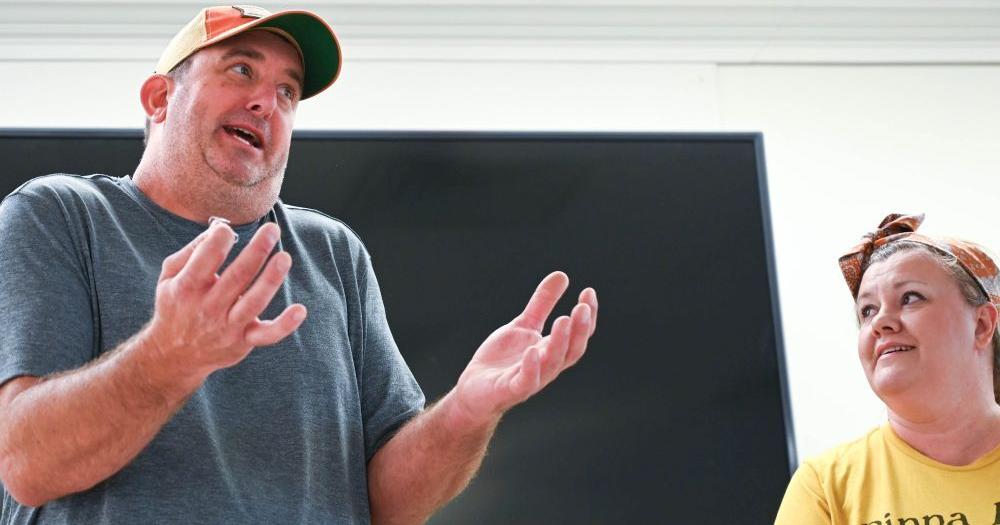Go Green: Vegetable gardening can help feed families, say local farmers | New
Although not the best time to start a garden, summer is a good time to start planning a fall and spring garden. It was among the many treats Shane and Liz Caraway of Pippa Hill Farms in Oglesby shared during a free gardening class on Saturday at the Temple Public Library.
Jenniffer Hentzen, head of adult services at the library, welcomed around 50 people gathered in the McLane room.
“We’re going to have more events like this,” she said. “Tell your friends.”
Liz Caraway said she and her husband typically teach these classes at their farm, a commercial gardening operation in Coryell County.
“One of our passions is teaching people how to grow their own food,” she said.
Beware, she says, because gardening is hard, difficult and time-consuming.
“Go small at first,” she said. “A lot of beginner gardeners want to grow everything. Choose two or three things.
Shane told the class to research the space they needed. They could start with tomatoes, peppers and squash, he said. Do not start with pumpkins, which will take over the whole garden.
They both recommended keeping a garden notebook. Gardeners need to know what they planted, when they planted it, and when it will be ready. For example, with a watermelon, he says, it’s hard to tell what’s inside, so the gardener needs to know when it’s due.
As for the types of gardening, he said raised beds are very popular now. The Caraways make a hybrid, he says. They start by turning the earth and then lift it about a foot.
One of the problems with a raised bed, he said, is that it tends to dry out faster.
Liz provided guidance on choosing a garden location. The general rule is to have full sun, but peppers, for example, do well in shade.
“Don’t put your garden near a lot of trees or bushes because they’re going to soak up a lot of your water,” she said.
Once the location is chosen, the gardener must think about what to grow, she said. Zucchini is a big producer, as is cantaloupe, she said.
Buying 30 tomato plants is a big mistake, she says.
“It will overwhelm you.”
Three to five plants will do more than feed a family, she said.
Gardeners may need to add topsoil, Shane said.
“You want to build your floor, something you can do over the years,” he said.
The work leaves in the ground, or the manure – but not the pig manure, he said, because it’s “too hot”. Rather than fresh, he says, the manure should be aged a bit, until it looks like dust.
“Improve your soil and keep improving it year after year,” he said.
Crop rotation helps improve garden soil, Liz said.
“Some vegetables take things out and some vegetables put things in,” she said.
Mushroom compost and alfalfa hay are good soil amendments, they said.
“If you start seeing earthworms in your garden, you’re doing something good,” he said.
The Caraways strongly recommend drip irrigation. Sprinkler systems waste a lot of water, he said, as do dripping pipes. With drip irrigation, the holes are spaced 4 inches apart, he said, providing a constant flow of water.


Comments are closed.